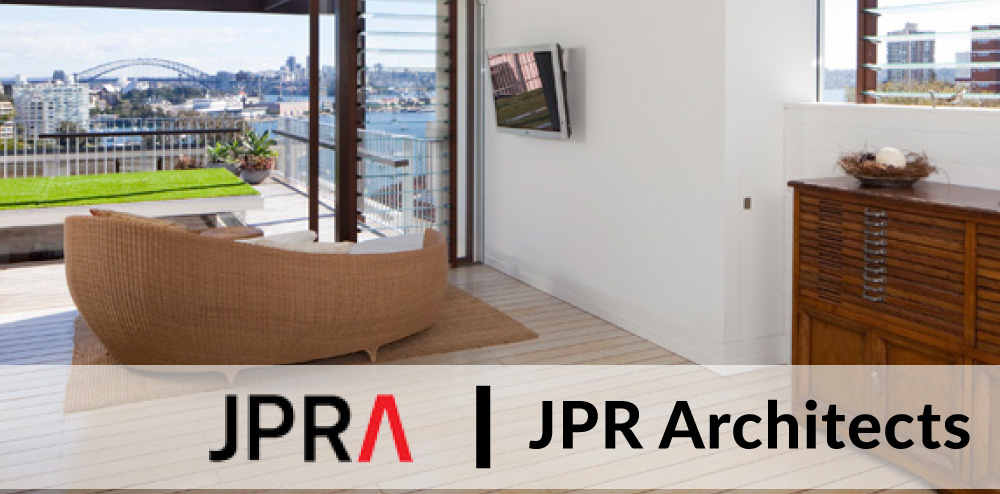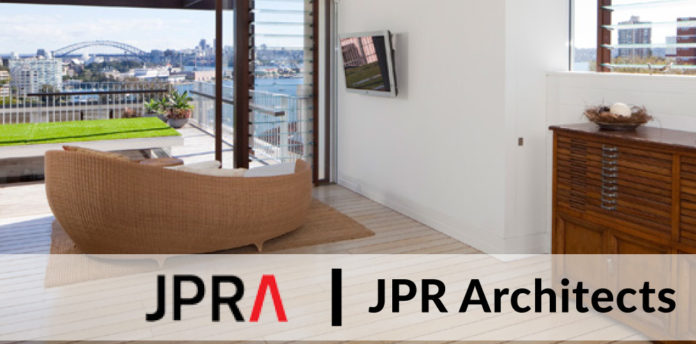
Innovation by design
Ian Poole and Dennis Rabinowitz – founders of JPR Architects – have more than 80 years of architectural experience between them. Over the course of their long and diverse careers, they have practiced all around the world, from South Africa, to the UK, New Zealand and Australia. Before forming JPR in 1990, they had both served as directors of successful firms and developed extensive portfolios of outstanding and award-winning designs.
Since migrating to Australia in 1995, Poole and Rabinowitz have built a national reputation that reflects the depth of their skill and experience. Over the years, they have applied their unique understanding of architecture to projects across a range of industry sectors, including luxury private homes, exclusive prestige residential developments, medium and high-density residential projects, and master planned communities.
Some of their iconic projects include the Sydney Corporate Park, the Sebel Pier One Hotel, and the recent Panorama Crows Nest in Sydney – which is a 17 story residential tower that was converted from an old hotel.
According to Director Ian Poole, those buildings – like all buildings in JPR’s portfolio – illustrate the company’s ongoing commitment to design quality. Additionally, they reflect the firm’s mandate to achieve the best between commercial imperatives and architectural excellence.
Committed to clients
With countless architecture firms in Australia, JPR really pride themselves in their technical expertise and knowledge. Not only are the directors hands-on designers, but they also possess an extensive technical and commercial understanding of the building industry – so their projects achieve excellence both structurally and aesthetically.
According to Poole, most of the firm’s customers are developers. He says many of them come to JPR for property development advice, because they appreciate their development savvy and construction knowledge.
Clients also appreciate JPR’s ability to be honest and upfront in terms of budget, timing and communication. Poole emphasizes the importance the team puts on living up to their promises, and ensuring that every project is on time and on budget.
According to Poole, that commitment has helped JPR build some very strong and long-lasting relationships with clients.
“We definitively believe that the best client is the client you’ve already got,” he says. “We don’t want time to try and reinvent ourselves in order to get new projects or customers. Instead, we invest all our time and energy into the clients we currently have.”
He says the business is “built on relationships”, and cites the fact that they’ve worked with most of their clients multiple times, on multiple projects. Some client relationships go back further than 15 years. Poole says this loyalty is due to JPR’s belief in a “co-operative process,” which means taking advantage the skills and experiences of the company’s staff while listening to and valuing input from their clients.
Many of those team members have been working with JPR Architects for many years – some have stayed with the company for nearly two decades.
“We don’t believe in picking up a job and employing contract staff who we drop once a project is done,” Poole says. “We have a tight core of long term employees and clients.”
Industry recognised
JPR Architects’ commitment to clients – and the high quality, stylish designs that result – has led to industry recognition and interest. Over the years, the company has consistently been recognised by industry bodies and media outlets. Their awards have been spread across a spectrum of institutions, and they have earned accolades for everything from their use of steel to their contribution urban development.
Recently, for example, the company was nominated in two different categories at the 2014 Property Council of Australia Innovation & Excellence Awards. They were nominated in the Best Public Building category for the Jewish Care Centre in Sydney, and the Best Heritage Development category for the Sebel Pier One Hotel.
The Jewish Care Centre received both praise from critics and the communities. It has been recognised for its aesthetics as well as its multifaceted interior space. The centre was built to help families in distress, but Poole says the design does not reflect that unfortunate purpose.
“The Jewish Care Centre is an incredibly unusual building, and it is apparent to everyone the amount of care, money and time has been put into it,” he says. “By looking it at it, you would never know it is a place where desperate people go to better their lives – instead, it is very uplifting.”
The Pier One Hotel is another project the firm is particularly proud of. When they came on board, the hotel was in dire need of refurbishment, but they were able to take the project one step further. After checking out the space, the team realized that an additional 36 rooms could be incorporated in to the building without affecting the external layout or violating its historic heritage. They took this information to the owner, who agreed to move forward with that plan. According to Poole, it has been an incredibly successful addition for the hotel, which enjoys almost 100 per cent occupancy of these rooms almost year round.
Focused on the future
Recently, JPR Architects embarked on a deliberate policy of bringing younger directors and associates to the mix in order to revitalize the company and bring in an array of fresh and new ideas. Poole and his partner have been running JPR for over 24 years, and he realises that it’s time to “change things up.”
As of now, Poole and Rabinowitz have no intention of growing their business – they want to keep it a boutique firm with no corporate office or structure, allowing themselves and the other directors to stay hands-on with their projects and every aspect of the business.
It is this dedication to quality – and to the satisfaction of their clientele – that has made JPR Architects a leader in their industry.







